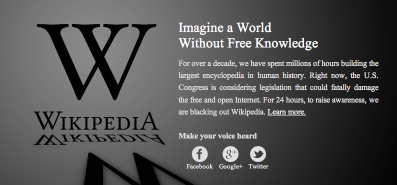In the UK the government is proposing a ceiling on benefits of £26,000. This sounds a large figure, indeed it is the median income, so seems reasonable that someone out of work should not receive more than the average working person. The press is, of course, polarised on the issue, as is the Church of England.
I was particularly interested in the coverage in last Wednesday’s Daily Mail, partly as this was where the former Archbishop of Canterbury chose to issue a statement about the issue, and partly because I was on a BA flight and it is one of the free newspapers! This issue of the Mail contained an article, “The hard workers who are proud not to claim”, detailing the circumstances of three different working and tax-paying households living below or close to the proposed £26,000 limit, who can’t understand why they are working and paying taxes to support others to live on more than them.
I wondered about the truth behind these stories. As you might imagine, the Mail’s stories were, to be generous, disingenuous, and most probably misleading, both to their readers and those they interviewed. When you work out the actual figures and facts behind the stories, things turn out rather differently then they were projected.
The issue of the proposed £26,000 benefits ceiling was particularly hot in the news after the House of Lords made radical amendments to the bill. The opposition in the Lords to proposed benefits reforms comes not just from the Labour benches, but includes some LibDems and Conservatives, and, vocally, several Church of England bishops.
Lord Carey, the former Archbishop of Canterbury, weighed into this debate chastising his fellow bishops in the Lords, on the grounds that the weight that the national debt lays on our children is a major moral issue and the runaway benefits bill is a crucial part of controlling this.
There are of course differing views on how fast and how radically we should be attempting to cut national debt and how this should be accomplished. What is notable is that Carey chose to make this statement in the Daily Mail. My guess is he chose the Mail, rather than, say, the Times or the Telegraph (let alone the Independent or Guardian, who might have published it alongside contrary views), is that the Mail is much more a paper for ordinary Middle England folk, the ‘squeezed middle’, who feel they are paying the bulk of the taxes that fund the burgeoning benefits budget.
Whilst the ‘quality’ newspapers push their own particular viewpoint, they do follow a certain journalistic ethic, and normally within their articles you find the full facts, as they know them. Now, this is sometimes very deeply buried, to the point of disinformation, but is at least present; the careful reader can see the counter arguments through the opinion.
The Mail has no such scruples; it is unashamedly a newspaper of persuasion not information.
Given this, however much the Mail is targeting a particular demographic, Carey’s choice seemed misguided or naive.
In particular, in the same copy as Carey’s statement, there was the article describing the three households, all in tight economic circumstances, but who are working, paying tax to fund benefits, but not on benefits themselves. This is, in fact, excellent journalism, cold figures are hard to comprehend, real examples can convey the truth better than abstractions.
One household was a single woman, Rachel, living on her own; the second, Lauren and David, an engaged couple with a baby living with one of their parents; and the third, Emma and Darren, a married couple with two small twins, living in a rented house. They all had net incomes below or close to the proposed £26,000 benefits cap, and in each case the description ends with a personal statement, which expresses their frustration that, while they manage to cope on their income, why should people need £26,000 when not in work:
“I don’t understand why people would need to claim more than £26,000 in benefits if I can live comfortably on this“, Rachel
“It’s crazy that people say they can’t live of £26,000. People need to make sacrifices like the rest of us have.“, Lauren
“It makes us very angry that my husband works so hard and pays tax on his income, which goes to pay the benefits bills of all those people who don’t work and who receive more money than us.“, Emma
What the Mail reporters clearly failed to tell any of these families is what they would be receiving on benefits if they were suddenly made redundant and out of work.
Just to see I put each of these people’s circumstances into the government benefits calculator and a housing benefit calculator.
Rachel, lives alone with £16,000 gross income and £13,000 net income. She describes rent (£500) and bills taking up most of her income, but leaving her with £250 a month for “recreational and leisure activities“, allowing her to “live comfortably“. If she lost her job her benefits including housing benefit to contribute to rent would total £9,774 per annum (£53.45 job seekers allowance, £19.38 council tax rebate, £115.30 housing benefit). That is just what she describes as her basic bills with none of her recreation or leisure. I’m sure if asked whether she would be happy to live on this, her answer would be different.
Lauren and David fare worst; they have a gross salary of £33,000, with a net income of £27,560 (including child benefit and child tax credits). If they were both to lose their job, they would take home a total of £200.61 a week, around £10,500 per annum. It was Lauren who said, “People need to make sacrifices like the rest of us have“. If the Mail reporter had explained to her that she would have to cope on 2/5 of their current take-home money would she feel the same?
It is the last family however, that does appear to highlight anomalies in the benefits system. Darren works in public transport and has a gross pay of precisely £26,000, leaving Emma and Darren with a take home pay of £21,608 (including child benefit). If Darren lost his job (or found himself unable to work as he has a medical condition) and both of them registered as job seekers (although Emma is currently looking after the children at home) then they would receive a total of £24,295 a year (just over £15,000 of this is basic benefit, the rest council tax relief and housing benefit), more than their current take home pay.
The reason for this disparity is that Emma and Darren do not attempt to claim benefits: “We are proud that we’re not on benefits, although sometimes it can be really hard“. In fact they would be eligible for substantial housing benefits, which would presumably make all the difference for them and their children.
The shame of being on welfare runs deep, and, assuming Emma and Darren are Mail readers, no doubt fanned by the constant stories of welfare scroungers and the ‘feckless’. They quite rightly want to instil an ethic of hard work into their children, but do not feel able to claim benefits, which they will have contributed to through tax and national insurance throughout their previous working lives, in order to help as they bring up those same children now.
Interestingly, they are happy to accept child benefit (and I assume child tax credit, although not explicitly mentioned), and when the children are of school age will not send them to a fee-paying school, but happy to send them to a state school, effectively an educational ‘benefit’ of around £16,000 a year, let alone insist on paying for hospital and doctors fees for delivery of the twins and subsequent medical care.
The difference is that these benefits, allowances, and services are universal, and so seen as ‘rights’ as a taxpayer, even if, as in the case of this family, you are a net beneficiary.
This very much strengthens the case for maintaining child benefit as a non-means tested benefit. In general, many benefits are not claimed, whether through pride, principles or ignorance. The one exception is child benefit, which is both universally accepted and well targeted.
Maybe if appraised of the full facts each of the people interviewed by the Mail might still feel the same, particularly Emma and Darren. Maybe too Mail readers would feel the same if presented with the truth. But clearly the Mail does not trust its readers to make up their own minds if given the full facts, and sadly Lord Carey has leant his weight behind this deliberate disinformation; unintentionally, but very persuasively helping to mislead the public.





